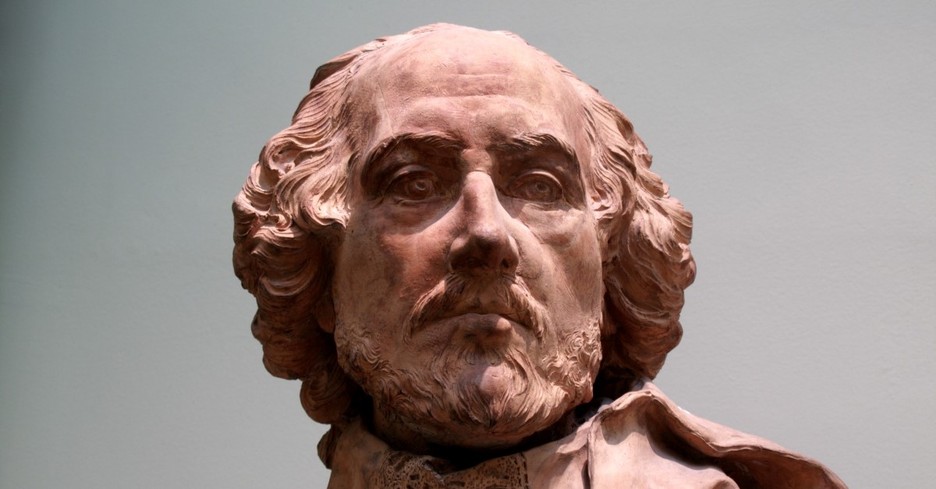
To be or not to be -- that is the question."
"My words go up, my thoughts remain below Words without thoughts ne'er to Heaven go."
uotes and phrases of William Shakespeare, the greatest of all English writers have become part and parcel of our culture and speech, but much about the man's life and beliefs remains mysterious. Even the date of his death is not certain, although it is generally thought that he died on this date, April 23, 1616. This would have been almost on Shakespeare's 52nd birthday (he was baptized the 26th of April, 1564 probably a few days after his birth).
Was Shakespeare a true Christian? Some of the anecdotes about his life make that doubtful. Nonetheless, a month before his death, he wrote his will, which he concluded by saying, "I commend my soul into the hands of God my Creator, hoping and assuredly believing through the only merits of Jesus Christ my Saviour to be made partaker of life everlasting."
He instructed that his tombstone to be inscribed:
"Good friend, for Jesus' sake forbear
To dig the dust enclosed here.
Blessed be the man that spares these stones,
And cursed be he that moves my bones."
Shakespeare also seems to have been a faithful member of the Church of England. Though he never wrote a play on a Biblical story, the Bible and the Book of Common Prayer were the most frequently quoted sources in his work. He quotes or alludes to passages from at least 42 books of the Bible; and phrases from the morning and evening prayers in the Book of Common Prayer are frequent. Of the books of the Bible, Shakespeare quoted from Matthew 151 times and from the Psalms 137 times.
Some have speculated that the King James Version of the Bible contains a cryptogram for Shakespeare. If you look at the 46th psalm in the King James translation, the 46th word from the beginning is "shake" and the 46th word from the end is "spear." Interestingly, Shakespeare was 46 when the translation was made in 1610! Did Shakespeare help with the translation work? There is no serious basis for such conjecture.
Indeed, there is serious scholarship that argues that Shakespeare did not even author the works attributed to him. One way or the other, Shakespeare took his secrets (spiritual and otherwise) to the grave with him when he died around this date almost 400 years ago.
Bibliography:
- Adapted from an earlier Christian History Institute story.
- Garrison, Webb. Strange Facts About the Bible. Nashville: Abington Press, 1968.
- Michell, John. Who Wrote Shakespeare? London: Thames and Hudson, 1996.
- "Shakespeare, William." Encyclopedia Britannica. Encyclopedia Britannica, 1968.
Last updated June, 2007
Photo Credit: ©GettyImages/TonyBaggett


